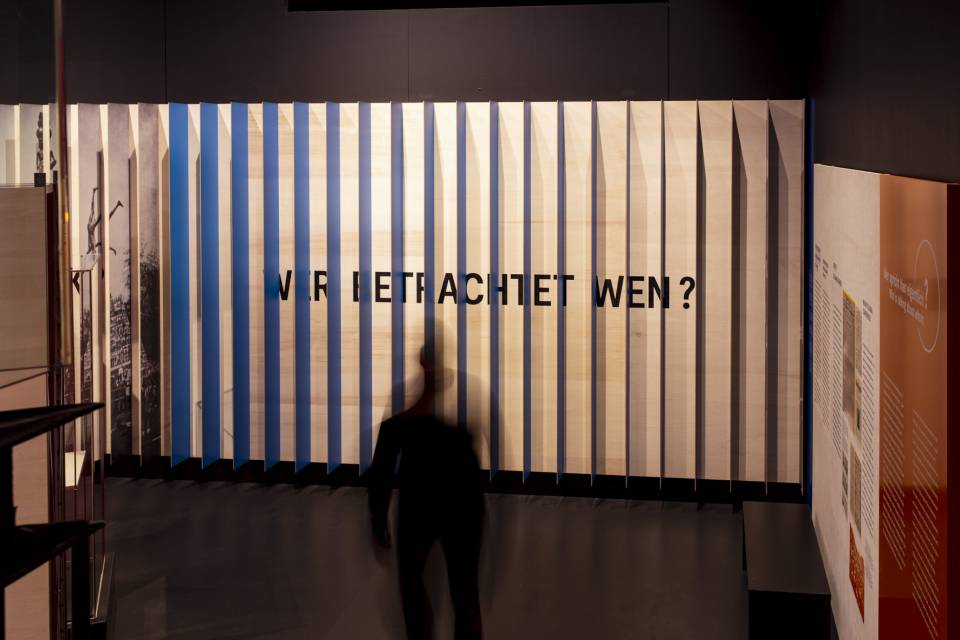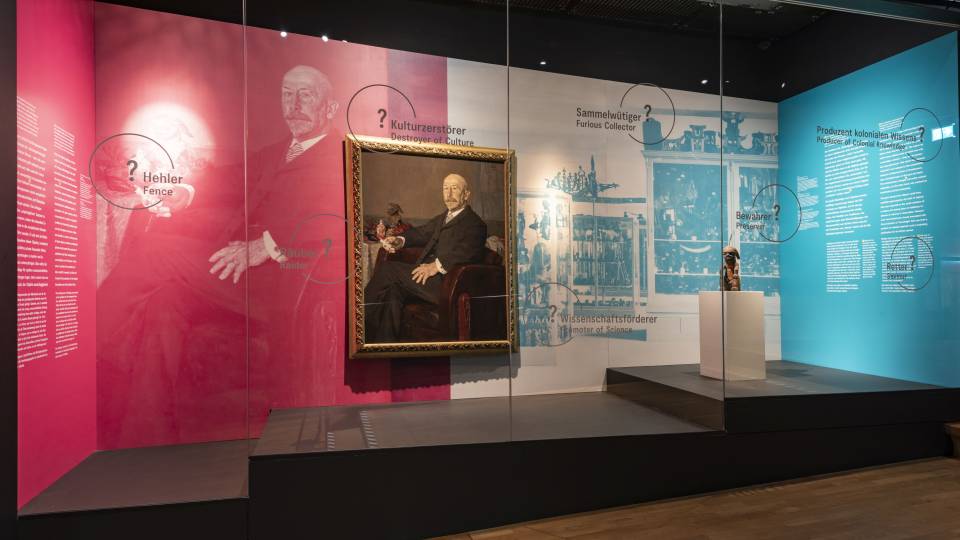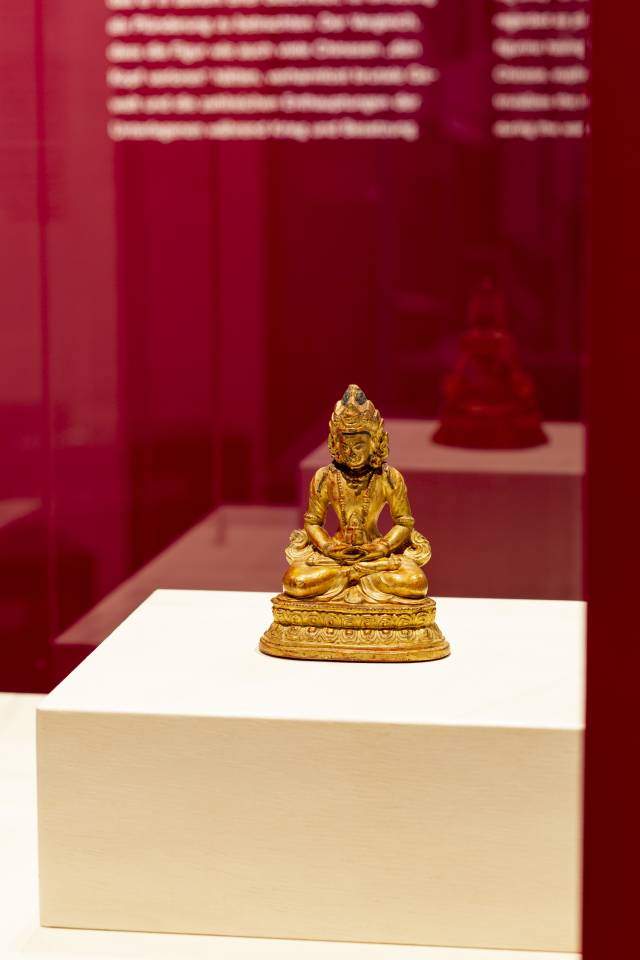Startseite > Difficult Heritage
What does the Linden Museum have to do with German colonialism? Which Württemberg actors were involved in colonialism? How present was colonialism in the everyday world of Württemberg? And how does it continue to have an effect today? The workshop exhibition showed the museum’s colonial connections between 1882, the year in which the Württembergischer Verein für Handelsgeographie was founded as the museum’s sponsor, and around 1940, and included effects up to the present day.
An important role was played by Karl Graf von Linden. He was chairman of the sponsoring association and left his mark on the museum during the colonial period. Accordingly, the museum was named after him in 1911. In addition, other personalities were presented who are part of stories that took place between the museum, Württemberg and the colonies. We also asked about those about whom we know little due to the colonial circumstances, but who were nevertheless instrumental in building up the collections. In a further step, the colonialist association system, which also includes the sponsoring association, was examined. Associations shaped social life and served as multipliers of colonial ideologies. Events such as colonial conferences, exhibitions and so-called “Völkerschauen” or objects of everyday culture show how deeply rooted colonialism was also in Stuttgart. The question was asked what continuities remain to this day.
Another thematic focus dealt with violence and focused on the so-called “Boxer War” in China (1900/01) as an example. Hundreds of Württemberg soldiers volunteered for this war, from which the Linden-Museum owns looted objects. Württembergers who took part in colonial expeditions and wars were honored with commemorative plaques and monuments, some of which still exist today. How should this be handled?
Provenance research at the museum was incorporated into the exhibition. In addition, the Linden-Museum specially commissioned a study on Württemberg and colonialism. Viewing the country’s history in the context of colonialism and highlighting the many cross-connections between institutions, people, and events is a new approach. Although some issues have been worked on before, scientific research and debate is just beginning on many issues. Critical distance and multi-perspectivity are central in order to avoid a one-sided or even nostalgic retelling of colonial history from the perspective of Württemberg actors. The fact that the debate was very much in motion was also evident in the exhibition. Based on the idea of the workshop, visitors were asked to answer questions, record their own thoughts or criticism and contribute or question their knowledge. The visitors were able to adopt different viewpoints and perspectives, gaps and connecting lines were revealed and the content was put up for discussion.







In the context of the exhibition, experts and activists with a connection to Stuttgart, the Linden-Museum and expertise around the topics of colonialism, postcolonialism, decolonization and antiracism have come together in an accompanying group to discuss the special exhibition “Difficult Heritage”.
Part of this discussion was presented in the workshop area of the exhibition and was intended to invite all visitors to reflect on the continuities of colonialism, the resulting patterns of behavior and privileges, and the possibilities for healing this open wound. The accompanying group hoped that the ideas, interventions and criticisms raised would find their way into the transformation process of the Linden-Museum and the reappraisal of the colonial heritage and be further developed and realized in the long term.
Audio guide “Critical change of perspective”
The legacy of the museum from a Black German perspective: Linda Addae’s audio guide drew attention to how colonialism and its continuities still have a significant influence on the realities of life for BIPoC (Black Indigenous People of Color). The perception of BIPoC evokes other interpretations of the exhibition’s theme, pointing to the contemporary implications of a supposedly closed history. The recordings were thought-provoking walks that took an interpretative look at stations in the exhibition and described certain aspects from an affective, affected perspective.
With the kind support of the Sparkassen-Finanzgruppe
Podcast episode: China Ticker – Curator Markus Himmelsbach on the so-called “Boxer War“
Dienstag bis Samstag, 10 – 17 Uhr
Sonn- und Feiertage, 10 – 18 Uhr